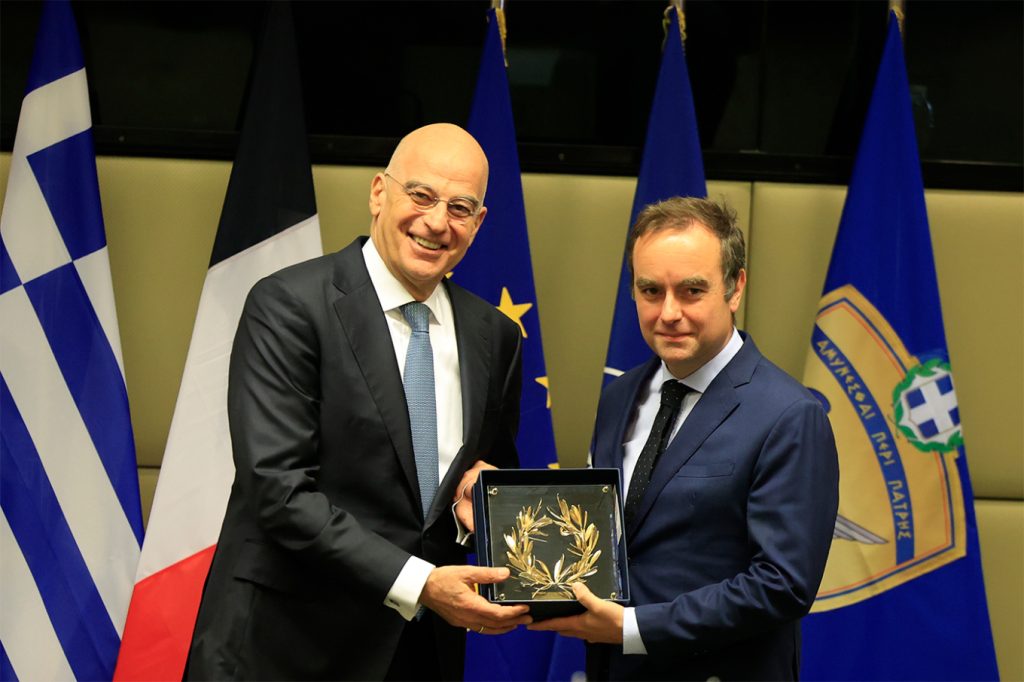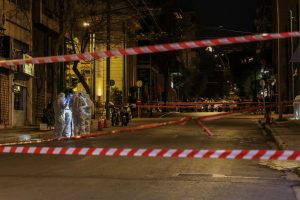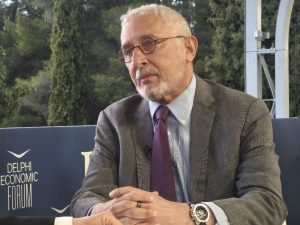WINDSOR LOCKS, Conn.—For many years, the Connecticut chapter of America’s largest UFO research group investigated alien life on Earth from the shadows. That wasn’t by choice—it was because almost nobody ever came to meetings in a suburban basement just outside of Hartford.
But times are changing. Today, the ranks of the Mutual UFO Network of Connecticut have swelled from six to nearly 100, and the meetups are happening in broad daylight. On the first Saturday of every month, several dozen Mufon members cram into red vinyl booths at AD’s Pizzeria in the town of Windsor Locks and spend hours discussing flying saucers over hearty servings of red sauce pasta and grinders (aka submarine sandwiches).
The group often welcomes a guest speaker to present in AD’s fluorescent-lit backroom and then review footage of recent UFO sightings on the pizzeria’s widescreen TVs (reserved for Pittsburgh Steeler games on Sundays). AD’s owners, the DeLeo family, don’t believe in aliens but have welcomed the group for around six years, agreeing to sell their T-shirts and allowing the chapter to stargaze on summer nights from their parking lot.
Dyke Spear Jr., an 88-year-old divorce attorney, is the guy who used to host meetings in his basement. Born during the Great Depression, Spear is from a generation that didn’t have the luxury of talking about aliens or UFOs in public without being labeled a kook.
He has believed in UFOs since he was a kid in 1947, when he heard about a crashed “flying disk” in Roswell, N.M. on the radio. The government claimed it was a downed weather balloon, but the incident metastasized into a web of conspiracy theories. In 1984, Spear claims that he saw a hovering craft the size of a Boeing 727 near Brewster, N.Y., and for most of his life, he didn’t feel like he could speak freely about it.
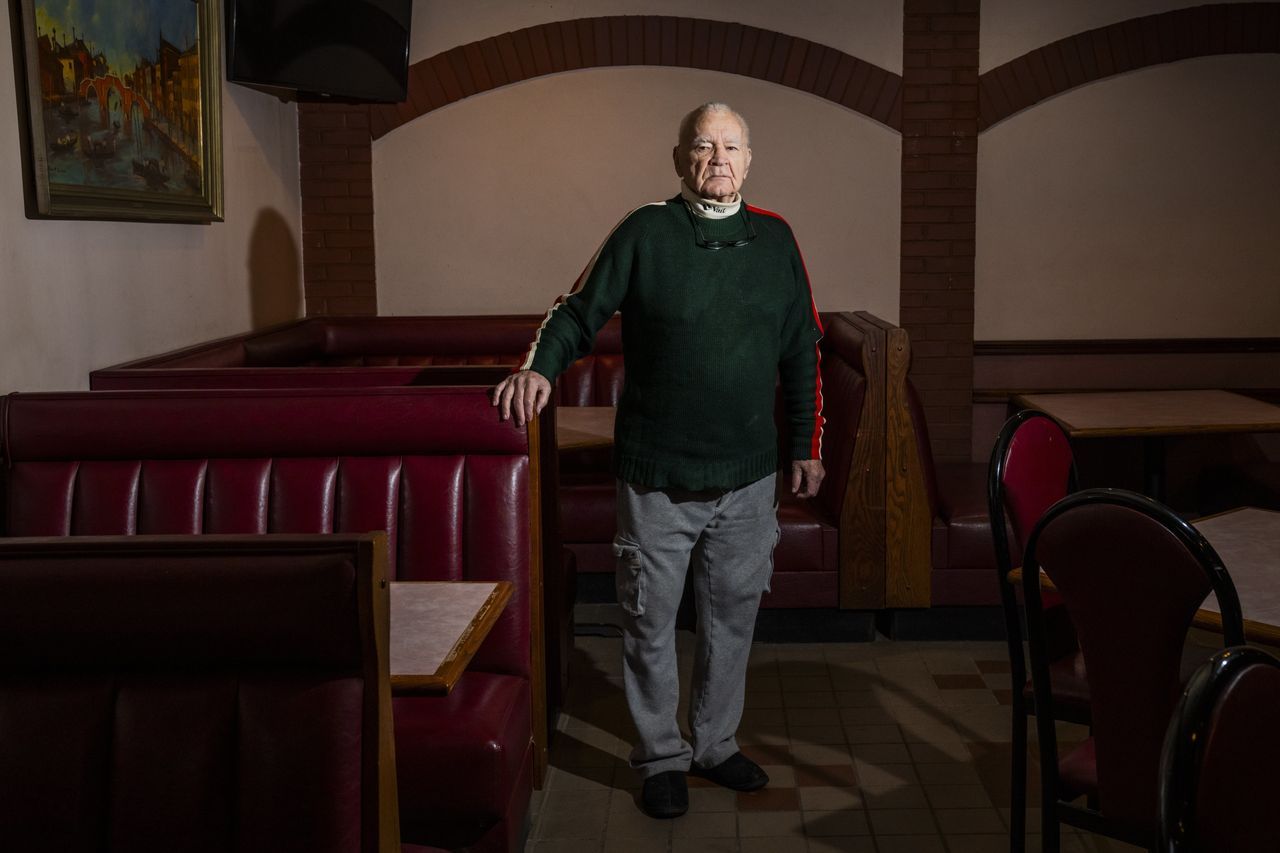
“Back when I was in court a lot, I tried to share my ideas about UFOs with other lawyers and professionals, but people weren’t receptive,” Spear said. “Today though, you can talk to pretty much anyone about UFOs.”
The man has a point: There’s probably never been a better time to believe in aliens than right now. That’s mostly because the federal government quietly admitted in April 2020 that several Navy pilots have encountered “unidentified aerial phenomena,” or UAPs, while flying around the Pacific Ocean. The feds released videos and say they still have no idea who was flying them or where they came from.
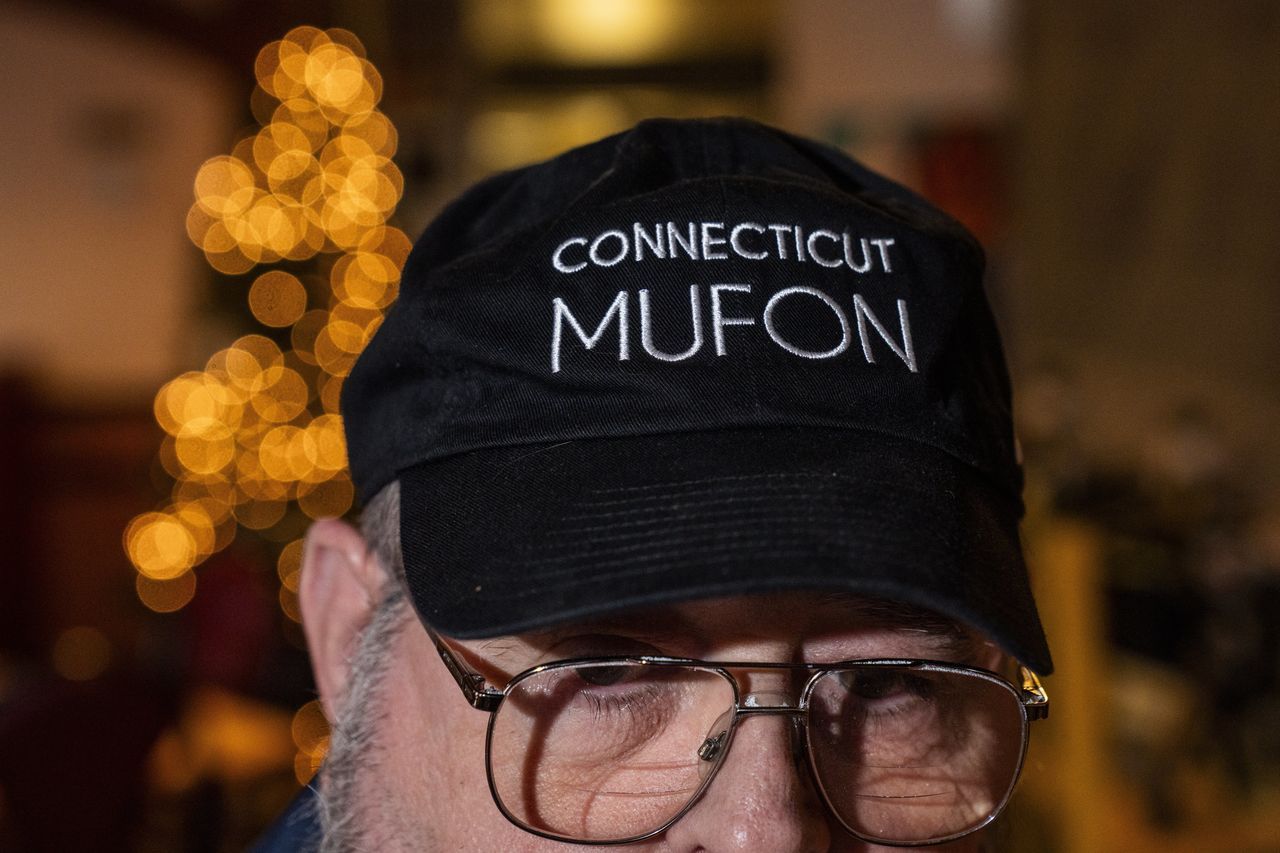
Congress followed up with a hearing in 2022 on UAPs, its first probe into flying saucers in 50 years. At a second hearing last year, former Air Force intelligence officer David Grusch testified that he was told on the job by current and former military officers that the U.S. government has possessed aircraft of nonhuman origin for decades and that he has seen classified photographic and physical evidence to prove it. The Pentagon has said there is no verifiable evidence to substantiate his claims.
“We are living in a watershed moment,” says Dr. Christopher Bader, a sociologist at Chapman University in southern California who studies American beliefs in the paranormal. The hearings before Congress “have legitimized the discussion of UFOs in a way that is virtually unprecedented.”
With little green men now a subject of serious scrutiny on Capitol Hill, aliens are taking over the American mind. Skepticism is declining, with 34% of Americans believing UFOs are probably alien ships or are controlled by nonhuman life-forms in 2022, compared with 20% in 1996, according to polls by YouGov and Newsweek. (UFOs, by the way, are doing far better with acceptance than Big Foot, the Yeti, or the Loch Ness monster, pollsters found.)
The new acolytes are constantly exchanging ideas about extraterrestrial life online, often connecting with thousands of other enthusiasts on Reddit, Twitter, or Discord to discuss reams of government documents, video footage and other evidence that there may be life beyond Earth. On social media, “UAP” has become a whole new buzzword among the internet savvy that’s effectively replacing the acronym “UFO.” A four-part docuseries called “Encounters” about alien sightings, directed by Yon Motskin, was Netflix’s most viewed television show in the U.S. after it was released this fall.
Colleges are also offering related lessons: “Following the release of the U.S. Pentagon UFO report, there has been a surge of interest,” says a description for a University of Michigan online course titled, “UFOs: Scanning the Skies.”
“Are we experiencing contact with a highly evolved nonhuman intelligence? For decades, UFOs (UAP) have garnered little attention in our daily lives. Presently, the UFO tide is beginning to turn,” declared an offering for a class at Helena College in Montana.
The government’s admissions have changed the game for UFO enthusiasts, Spear says. Now, his home state of Connecticut houses one of the most vibrant chapters of Mufon, whose comeback he credits to its newest leader, 44-year-old Mike Panicello.
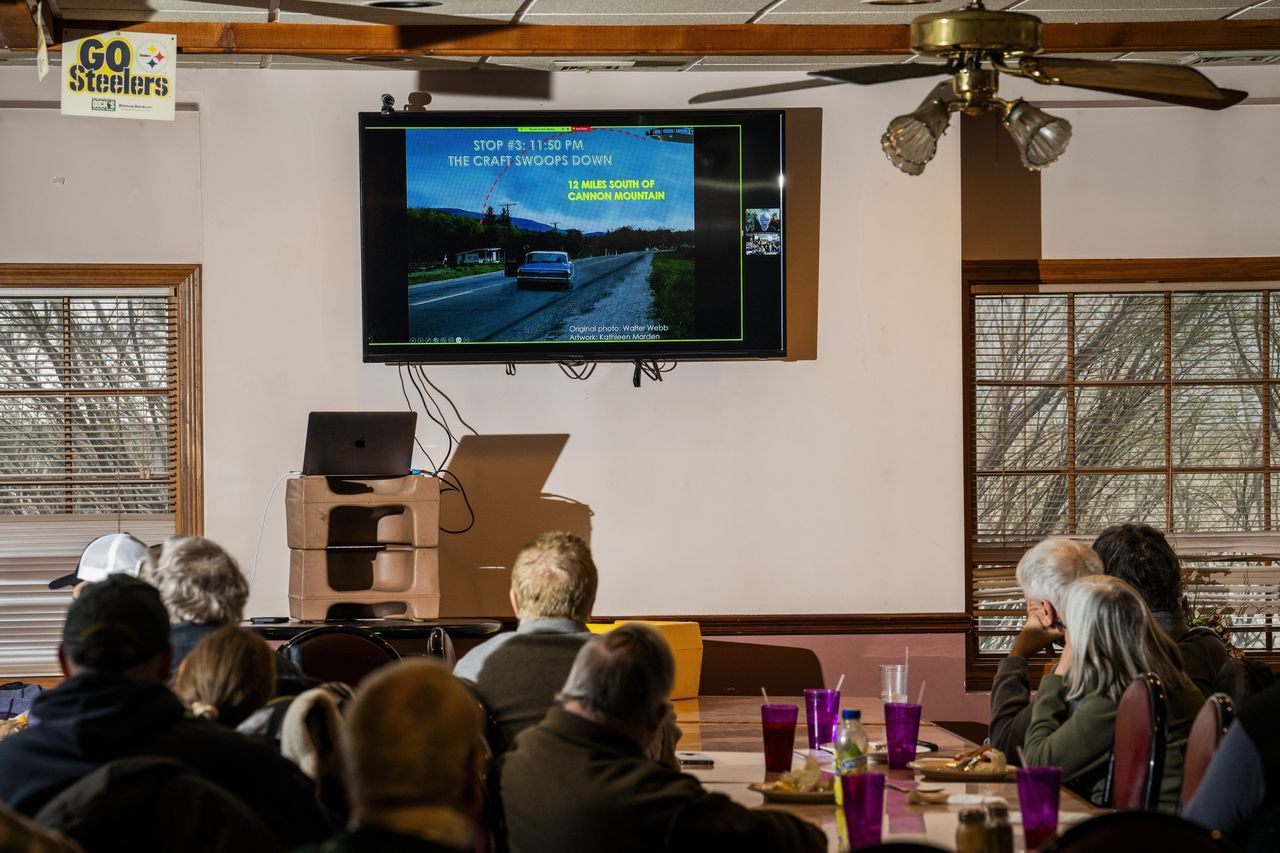
“I think it’s easier to talk about it now with all of the disclosure and the public finally takes us more seriously,” said Panicello, whose day job is working in IT for the Connecticut State College System. “We’re not the people with the tinfoil hats anymore.”
On a recent November night, around 15 people logged online for a virtual meeting of “UFOs over Pennsylvania” to hear Bob Steward’s stories of possible encounters during his lifetime.
During a cruise with his ex-wife Linda in the Caribbean in 2009, Steward says he looked out from the balcony of his oceanview room and saw “three brilliant red lights in the form of a triangle” appear in the middle of a group of clouds. The former Air Force sergeant believed it was a helicopter or plane at first, except it made “no noise and no motion” before it silently disappeared into the night.
“Might have been cloaking tech,” chimed in Jennifer Stephens, a participant in the meeting.
Bob was the guest of honor that night because his daughter, Megan, works with one of the event’s organizers at a long-term healthcare facility in Wilmington Del., and she overheard him talking about UFOs in the break room at their office. Megan ran over to him and immediately suggested that her father share some of his stories.
“We’re trying to build a community where people can come to and talk about these kinds of experiences,” said Mark Way, a 31-year-old IT specialist who started the group after hearing the recent congressional testimony about UFOs. “In our group, people are free to talk about whatever they want about these extraordinary encounters that they believe that they’ve had, without anybody ridiculing them or judging them, or dismissing them.”
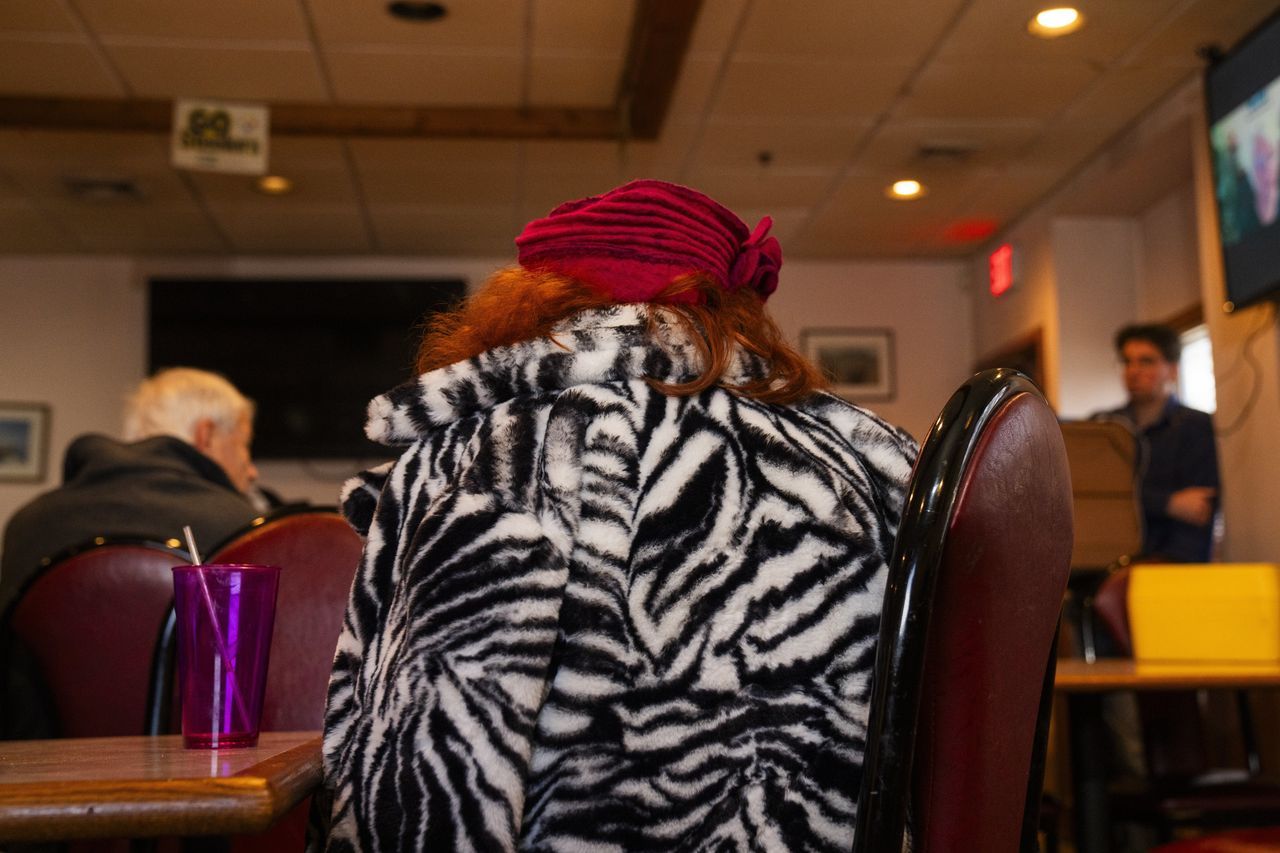
But for most Americans, the stigma around believing in aliens or discussing UFOs is still out there.
John Shahbazian, a 43-year-old software engineer living outside of Seattle, says the recent congressional testimony of Grusch and other former military officers convinced him it was worth taking the possibility of extraterrestrial life seriously.
“I was a Navy JROTC in high school, and I have known military people all my life,” he says. “These are not the kind of guys who will jump up and down and scream ‘I saw a UFO.’”
Still, he admits some friends would prefer to chat with him about the Seahawks or the great outdoors. One of his best friends threatened to stop going on camping trips with him if he kept on bringing up aliens.
“A lot of people still think aliens and flying saucers are the stuff of fantasy,” he said. “They probably need to see a UFO land on the White House lawn before they’ll be convinced.”
Write to Alexander Saeedy at alexander.saeedy@wsj.com

